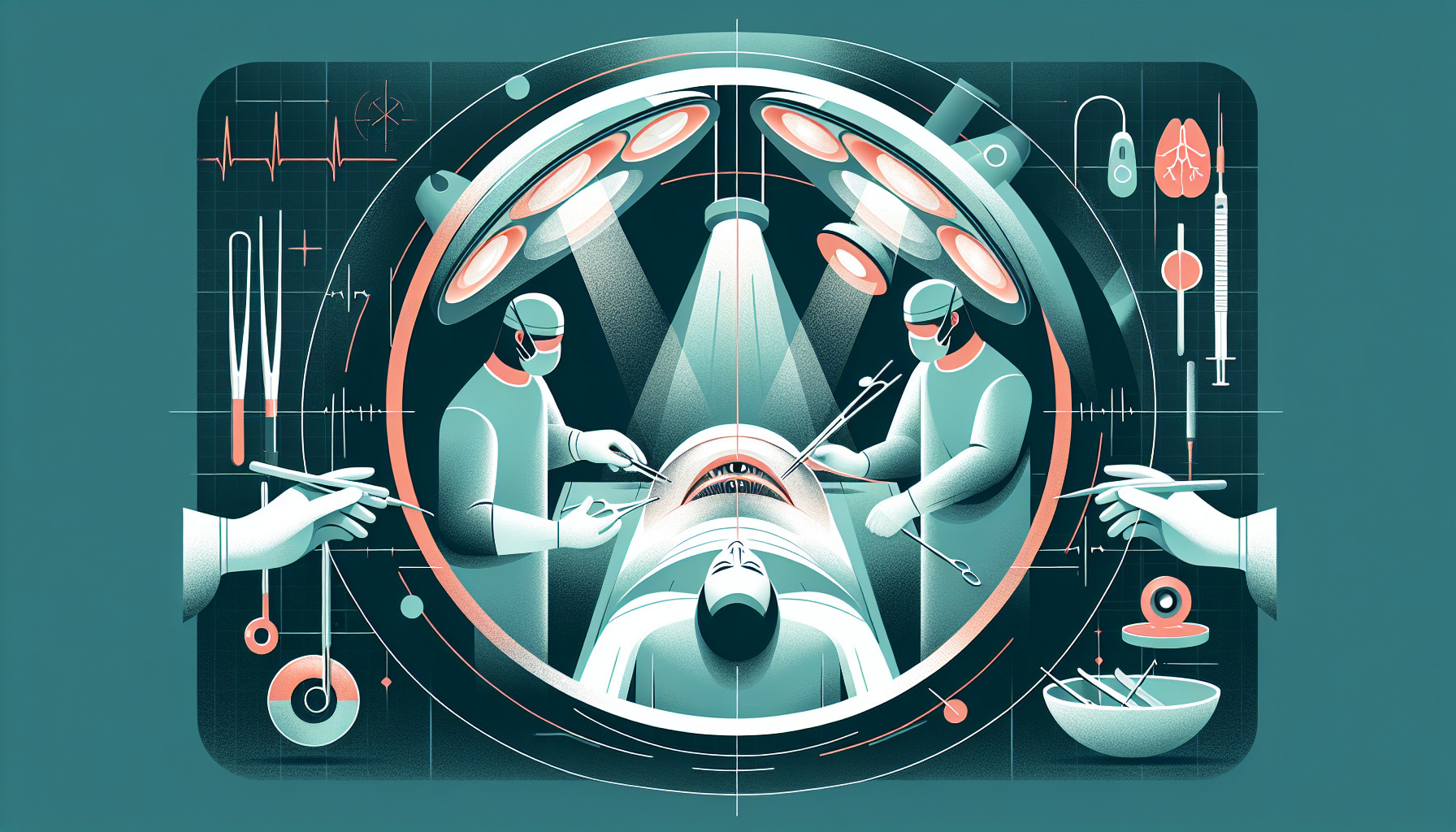Our Summary
This research paper discusses the potential risks and considerations for patients who are taking blood-thinning medications (antiplatelet and anticoagulant drugs) and are undergoing cataract surgery. These patients are usually older and these medications are often prescribed to prevent blood clots.
The paper suggests that for cataract surgeries, the type of anesthesia that is applied directly to the eye is preferred over the one that is injected with needles. Medications like Aspirin can be safely continued during cataract surgery. For patients taking the drug Warfarin, the risk of bleeding during cataract surgery is low as long as the blood’s clotting time is within the normal range.
As for other oral blood-thinners, there is not enough research to make a solid recommendation. However, the paper emphasizes that in general, anesthesia for cataract surgery is low risk, even for patients taking blood-thinners. It also warns that stopping these medications before surgery could potentially increase the risk of blood clots.
FAQs
- Is it safe to continue taking Aspirin during cataract surgery?
- What type of anesthesia is recommended for patients taking blood-thinning medications during cataract surgery?
- What are the potential risks for patients taking Warfarin during cataract surgery?
Doctor’s Tip
Overall, it is important for patients to discuss their medications with their doctor before undergoing cataract surgery. The doctor may adjust the dosage or recommend alternative medications to minimize any potential risks. It is crucial to follow the doctor’s advice and attend all follow-up appointments to ensure a smooth recovery process.
Suitable For
Overall, patients who are recommended cataract surgery are typically those who are experiencing blurry vision, difficulty driving, reading, or seeing in low light. Cataracts are more common in older individuals, so age is also a factor. Patients with certain medical conditions such as diabetes, high blood pressure, or a history of eye injuries may also be recommended for cataract surgery. Additionally, patients who have a strong desire to improve their vision and quality of life are good candidates for cataract surgery.
It is important for patients to discuss their medical history, medications, and any concerns with their healthcare provider before undergoing cataract surgery. This will help determine the best course of action and ensure a successful outcome.
Timeline
Before cataract surgery, a patient typically undergoes a comprehensive eye exam to determine the severity of the cataracts and the best course of treatment. The patient may also need to undergo pre-operative testing to assess their overall health and suitability for surgery. The ophthalmologist will discuss the risks and benefits of the procedure, as well as any specific instructions for before and after surgery.
On the day of surgery, the patient will be given instructions on what to eat and drink, as well as when to stop taking certain medications. The patient will usually receive anesthesia to numb the eye and may be given a sedative to help them relax during the procedure. The surgery itself typically takes less than an hour, during which the cloudy lens is removed and replaced with a clear artificial lens.
After cataract surgery, the patient may experience some discomfort, redness, and blurry vision for a few days. The ophthalmologist will provide post-operative instructions, which may include using eye drops, wearing a protective shield at night, and avoiding strenuous activities. Follow-up appointments will be scheduled to monitor healing and adjust any medications as needed.
Overall, cataract surgery is a safe and effective procedure with a high success rate. Patients can expect improved vision and quality of life following surgery, with minimal risks and complications.
What to Ask Your Doctor
- What type of anesthesia will be used for the surgery?
- Can I continue taking my blood-thinning medications leading up to the surgery?
- Will there be any adjustments needed to my medication regimen before and after the surgery?
- What are the potential risks or complications of cataract surgery for patients taking blood-thinning medications?
- How will my medical history and current medications impact the surgical process and recovery?
- Are there any specific precautions or measures that need to be taken during the surgery due to my medication regimen?
- What is the expected recovery time and post-operative care for patients taking blood-thinning medications?
- Are there any alternative treatment options or considerations for patients in my situation?
- How frequently will I need follow-up appointments or monitoring after the surgery?
- Are there any specific signs or symptoms I should watch for after the surgery that may indicate complications related to my medication use?
Reference
Authors: Kara-Junior N, Koch CR, Santhiago MR, Fornari L, Caramelli B. Journal: Arq Bras Oftalmol. 2018 Jul-Aug;81(4):348-353. doi: 10.5935/0004-2749.20180069. PMID: 29995131
